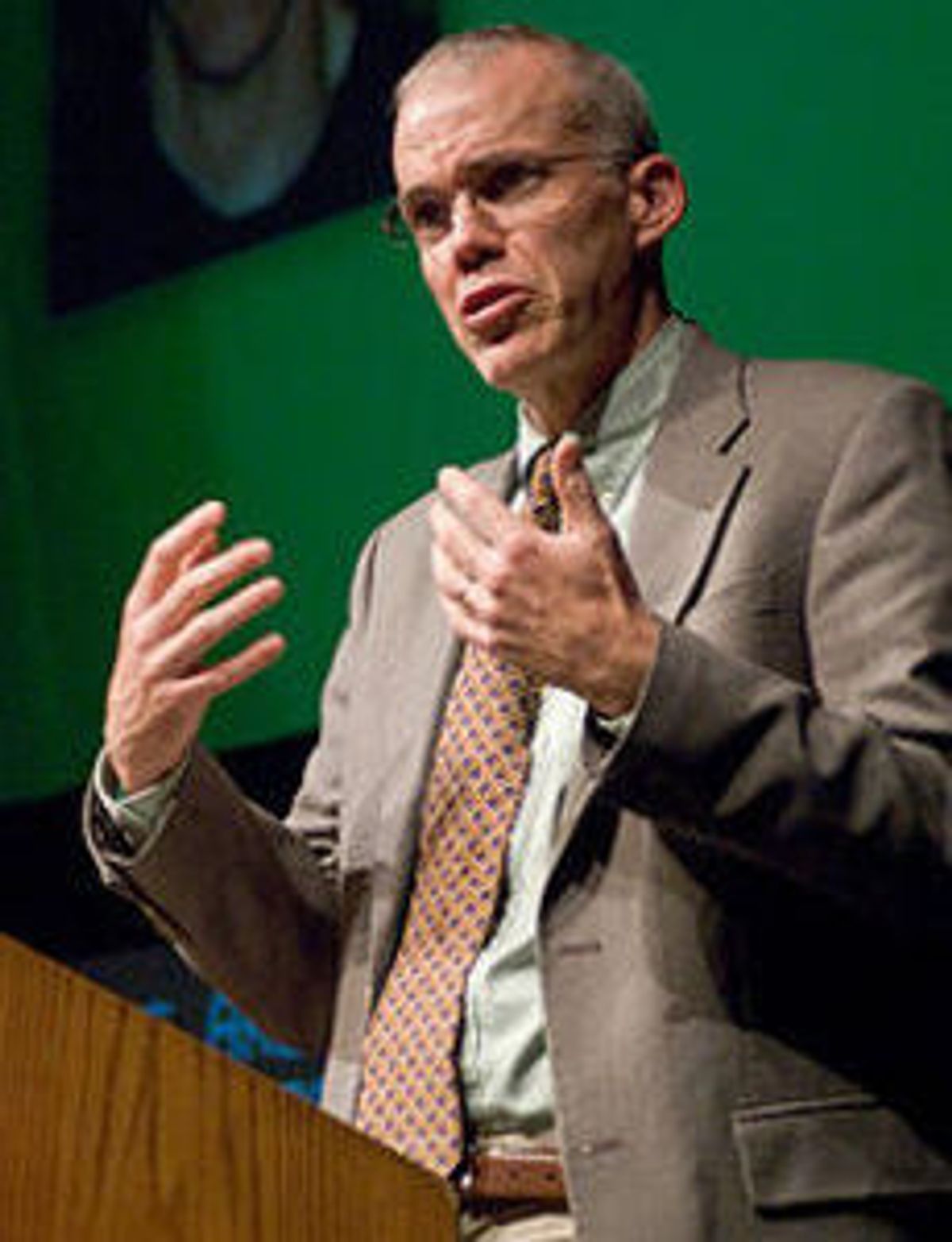The campaign to force major institutions to divest holdings in fossil energy companies may be conceptually misguided and its ultimate goal utterly unrealistic, but it appears to be rapidly gaining traction. Yet if the ultimate effect is to accelerate adoption of a U.S. carbon tax--and, in the bargain, help clear our precious national airwaves of endless ads trumpeting the virtues of coal, oil, and natural gas--the ultimate effect may be benign.
"Spreading like wildfire, [the] fossil fuel divestment campaign [is] striking a moral chord," intoned Inside Climate News last week. "Divestment campaigns are now underway at 153 colleges and universities, large and small from coast to coast," the online publication reported. "The organizers expect to reach 200 after the winter break."
Bill McKibben [photo], the inspirational figure behind 350.org, has been "touring the country by bus, speaking at sold-out halls and urging students to begin local divestment initiatives focusing on 200 energy companies," TheNew York Times reported. The really big and influential colleges, to be sure, are keeping 350.org at a distance. No college with an endowment greater than $1 billion has endorsed the campaign, noted the Times.
We may be sure, however, that every senior-level college administrator and every fossil company CEO is keenly aware of the success similar campaigns had when they took on the tobacco industry and South Africa's racist apartheid regime. So, though administrators and executives may feel it is deeply wrong to formulate issues connected with climate change and fossil fuels in moral terms, they also know their feelings may turn out to be politically irrelevant.
Could McKibben's fast-spreading grassroots campaign prompt energy corporations to rethink their hostile attitude toward "putting a price on carbon" by means of a cap-and-trade emissions reduction system or a carbon tax? Might they come around to the view that the wiser course of action is to support pricing up carbon on a national basis, rather that face a constant barrage of unpredictable attacks from every side?
There are other reasons--quite a lot of other reasons, actually--to think the political fundamentals could shift in favor of a carbon tax. Elizabeth Kolbert, the author of a good book about climate change, sums them up in the current issue of The New Yorker magazine: among them, a Congressional Research Service report finding that a modest carbon tax could cut the U.S. budget deficit in half; a bipartisan Brookings Institution/American Enterprise Institute conference in which the idea was seriously considered; and, not least, a Wall Street Journal article reporting on that conference and related matters.
Bob Inglis, a Republican former congressman from South Carolina told the Associated Press that the idea of a carbon tax may be "may be moving [from the impossible] to the inevitable without ever passing through the probable," notes Kolbert.



